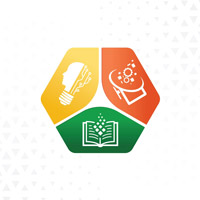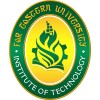Seminars and Trainings

Attendee
AI in the Workplace: Practical Applications for Educators and Associates to Improve Teaching and School Management
Awarded by Educational Innovation and Technology Hub on August 14, 2024
View Credential
Attendee
Data Privacy Act Awareness Seminar
Awarded by FEU Tech Human Resources Office on August 07, 2024
View Credential
Attendee
Enhancing Physical and Mental Resilience in the Workplace
Awarded by FEU Tech Human Resources Office on August 05, 2024
View Credential
Attendee
Personalized Education: A Workshop on Cognitive Diagnosis Modeling Using R Programming
Awarded by Educational Innovation and Technology Hub on April 12, 2024
View Credential
Organizer
Nanolearning: Bite-Sized Content as the Next Big Trend in Contemporary Education
Awarded by Educational Innovation and Technology Hub on December 12, 2023
View CredentialResearch Publications
Conference Paper · DOI: 10.1145/3678726.3678728
Exploring the Efficacy of Multimedia Technology in Fostering Technology-Enabled Learning and Teaching: Bridging Educational Gaps
ACM International Conference Proceeding Series, 2024, 134-141
![]() Teodoro F. Revano, Jr.
Teodoro F. Revano, Jr.
![]() Jr.
Jr.
![]() Geliza Marie I. Alcober
Geliza Marie I. Alcober
The research examines the efficacy of multimedia technology in augmenting technology-enhanced learning and instruction to address educational disparities. The incorporation of multimedia components into educational settings has grown more widespread due to the fast progress of technology. Nevertheless, the degree to which multimedia technology aids in resolving educational inequalities has not been thoroughly investigated. The research used a mixed-methods approach, including both quantitative surveys and qualitative interviews, to investigate the experiences and attitudes of educators and learners on the incorporation of multimedia technology in educational settings. The research aims to ascertain the advantages and constraints of multimedia technology in promoting efficient learning environments, specifically in varied educational contexts. The research seeks to analyze the effects of multimedia technology on student engagement, comprehension, and information retention. The goal is to get a better understanding of how to maximize the use of multimedia technology in order to reduce educational inequities and improve learning outcomes. The results will provide valuable insights for educators, policymakers, and curriculum writers on successful methods to use multimedia technology in educational activities.
Conference Paper · DOI: 10.1109/HNICEM60674.2023.10589178
Maximizing Subscriber Base Growth Through Door-to-Door Sampling Caravan: A Case Study of DITO Telecommunication
2023 IEEE 15th International Conference on Humanoid, Nanotechnology, Information Technology, Communication and Control, Environment, and Management, HNICEM 2023, 2023
![]() Teodoro F. Revano, Jr.
Teodoro F. Revano, Jr.
![]() Geliza Marie I. Alcober
Geliza Marie I. Alcober
![]() Manuel B. Garcia
Manuel B. Garcia
A case study of DITO telecoms is used to examine the effectiveness of door-to-door sampling caravans for telecoms firms to develop their subscriber base. The telecoms sector is changing; thus client acquisition strategies are being reconsidered. In this study, in- person engagement and personalized encounters are evaluated in the digital age. The mixed-methods research analyses quantitative and qualitative data. Customer comments and sales team observations during the door-to-door sample caravan provide qualitative data, while subscriber growth metrics, conversion rates, and demographic profiling provide quantitative data. Research shows that door-to-door sampling caravans may boost subscription growth. Personalized interactions build trust and rapport, which may overcome consumer skepticism about digital marketing. The technique also permits direct targeting of demographics and places to meet local requirements. However, scalability, resource allocation, and long-term effect must be considered. The research emphasizes strategic planning, training, and communication for caravan sales teams. The study found that although digital initiatives are important, offline approaches like door- to-door sampling caravans may provide a competitive edge. Telecommunications firms looking to vary their client acquisition techniques might learn from the research that in-person contact can maintain subscriber growth.
Conference Paper · DOI: 10.1109/HNICEM57413.2022.10109434
Sociodemographic Profile as Moderators in the Technology Acceptance of Productivity Applications
2022 IEEE 14th International Conference on Humanoid, Nanotechnology, Information Technology, Communication and Control, Environment, and Management, HNICEM 2022, 2022
![]() Manuel B. Garcia
Manuel B. Garcia
![]() Geliza Marie I. Alcober
Geliza Marie I. Alcober
![]() Maaliw R.R.
Maaliw R.R.
![]() Sibbaluca B.G.
Sibbaluca B.G.
![]() Dela Fuente J.A.
Dela Fuente J.A.
![]() Ramos A.L.A.
Ramos A.L.A.
During the outbreak of COVID-19, the productivity gap between working in the office and at home has become a more critical issue in the labor market. For teachers with numerous vital responsibilities, the inescapable increased workload results in less productivity and efficiency. Following the reliance on productivity applications to lessen labor, we investigated the moderating effects of sociodemographic profiles of teachers through the Technology Acceptance Model. The demographic makeup of our participants (n = 513) was dominated by assistant professors, females, married, licensed teachers, aged 25 to 34 with a teaching experience of 6 to 10 years, and permanent and full-time in a public university. Our findings demonstrate that sociodemographic variables moderate the effects of perceived usefulness (PU) and perceived ease of use (PEOU) on teachers' behavioral intention to use (BITU), except for the effects of gender in PEOU → BITU, teaching experience in PEOU → BITU, and educational attainment in PU → BITU.
Conference Paper · DOI: 10.1109/HNICEM57413.2022.10109478
TISSA: A Web-based Helpdesk Support System for Tertiary Institutions with Knowledge-based Management and Ticket Forecasting using Time Series Methods
2022 IEEE 14th International Conference on Humanoid, Nanotechnology, Information Technology, Communication and Control, Environment, and Management, HNICEM 2022, 2022
![]() Geliza Marie I. Alcober
Geliza Marie I. Alcober
![]() Rubio A.J.M.
Rubio A.J.M.
![]() Lazaro J.P.
Lazaro J.P.
![]() Mangaba J.B.
Mangaba J.B.
![]() Balmeo H.D.A.
Balmeo H.D.A.
![]() Teodoro F. Revano, Jr.
Teodoro F. Revano, Jr.
This project aims to aid students, teachers, and even non-teaching staff in terms of managing technological inquiries and maintaining communication to perform academic-related transactions by developing Tissa - a web-based helpdesk support system for tertiary institutions that integrates various time series analysis techniques in forecasting the estimated number of tickets to be filed by the stakeholders based on historical records. Specifically, it explores the effects of developing a dedicated ticket management system that incorporates both analytics and enhanced user experience to the users' satisfaction, especially in a tertiary school setting. A total of 62 respondents were selected through purposive sampling. These respondents helped in evaluating the system's overall quality based on the ISO/IEC 25010 software quality model. The respondents' evaluation of the system's overall quality received an above-average score which means that the system passed the testing in terms of system requirements. The results gathered also suggest that 95.2% of the respondents agree that the inclusion of data visualization serves as valuable insights in performing strategic business decisions. Additionally, the system's user experience evaluation received the highest mean score of 4.82. The results for exponential smoothing yielded an 88% accuracy, linear regression was 80% accurate, simple moving techniques had an 85% accuracy rate, and 84% for the weighted moving average, which suggest that techniques used in this study can be considered reliable for future references.
Conference Paper · DOI: 10.1109/HNICEM54116.2021.9731999
Twitter Sentiment Analysis towards Online Learning during COVID-19 in the Philippines
2021 IEEE 13th International Conference on Humanoid, Nanotechnology, Information Technology, Communication and Control, Environment, and Management, HNICEM 2021, 2021
![]() Geliza Marie I. Alcober
Geliza Marie I. Alcober
![]() Teodoro F. Revano, Jr.
Teodoro F. Revano, Jr.
It is clear that since the COVID-19 pandemic started in the Philippines, education is one of the most affected areas. After more than a year of struggling with different community lockdowns and the alarming consistency with the increasing number of confirmed cases each day, students and teachers are now left with the choice to voice out their frustrations, activism, opinions, and ideas regarding online classes through different social networking sites, most especially Twitter. With the influx of tweets available in the internet sphere, the authors of this study decided to conduct a sentiment analysis to categorize the overall opinions of Filipino citizens about the current state of education after more than a year of adapting with the distance learning practices that are now considered as the new normal. The authors utilized rtweet, a built-in package available in R programming to perform opinion mining on Twitter data collected through the package related to online class during pandemic. Through sentiment lexicons available in R such as bing and afinn, the results show that most of the tweets about online learning in the Philippines turned out to be neutral. The positive responses are 55.77% while 44.23% of the sentiments collected are negative. To evaluate the accuracy rates of results, the authors used three classification techniques namely Naïve Bayes, logistic regression, and random forest. Naïve bayes and logistic regression both show 69.23% accuracy rate and random forest calculated 71.15% accuracy in identifying whether the given tweet is a positive, negative, or neutral sentiment.


